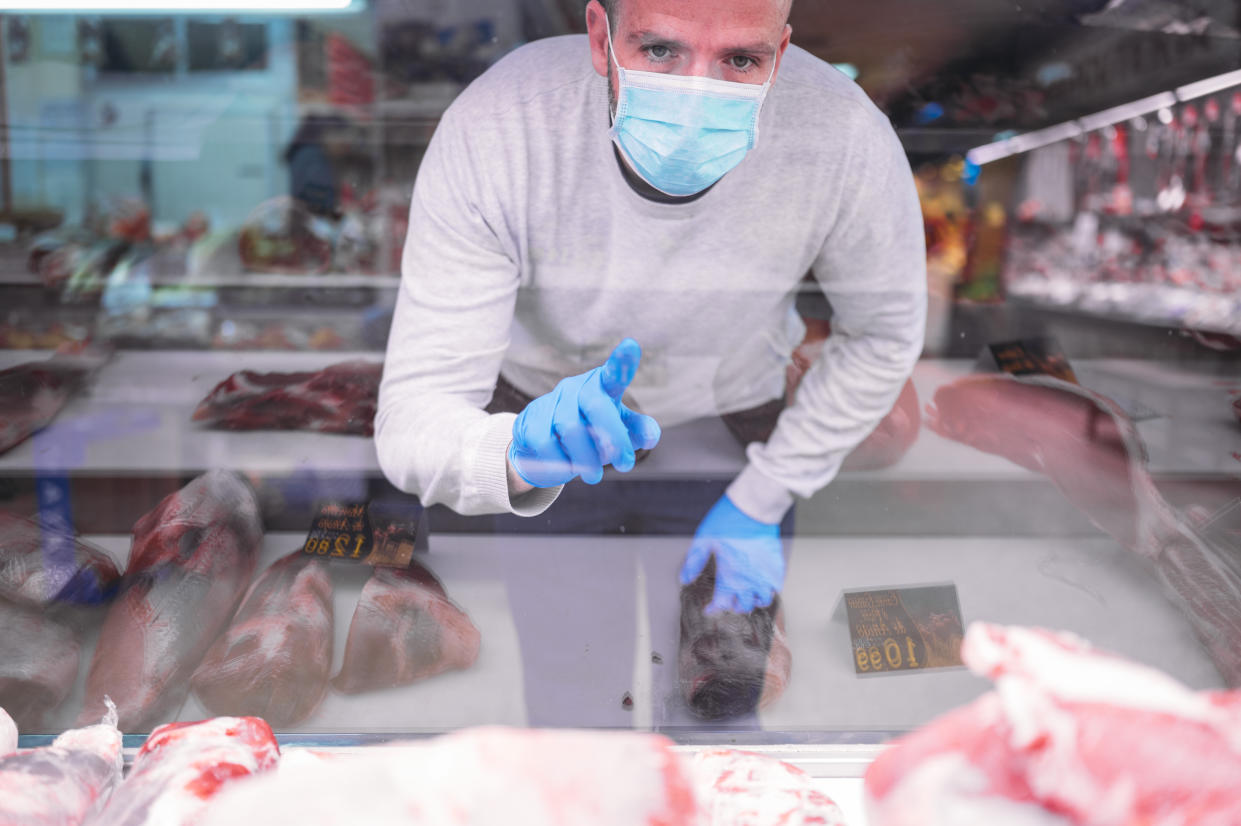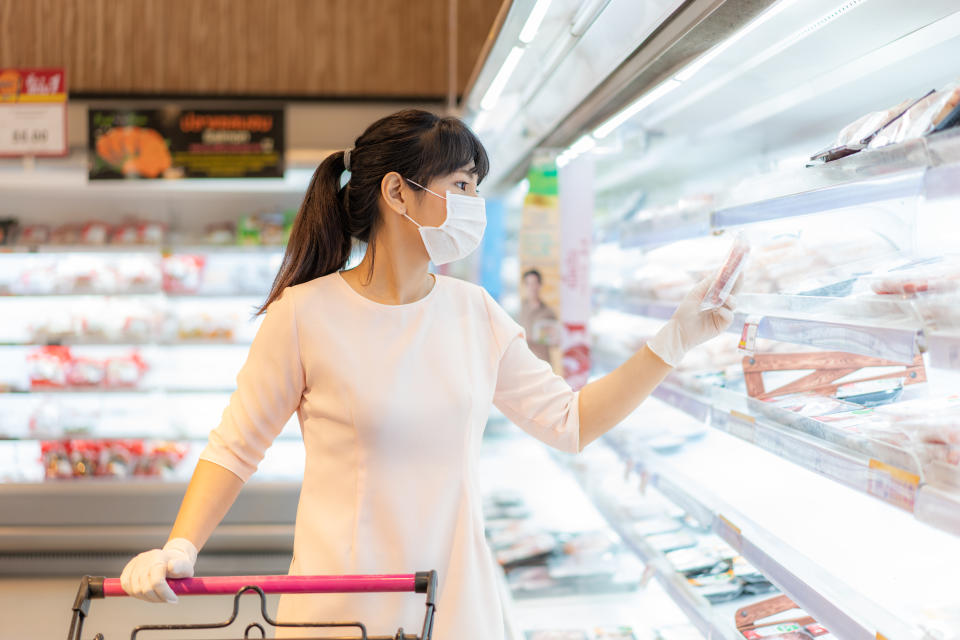‘Cut back on meat to avoid another pandemic’, urge experts

Experts have urged people to cut back on meat to avoid another pandemic.
The coronavirus outbreak has caused worldwide devastation, with the global death toll exceeding 482,000.
With a third of the world once on lockdown, the economy has also taken a battering.
It has been argued an infectious outbreak has not occurred on this scale since Spanish flu in 1918, which killed between 20 and 50 million people worldwide.
The 25 experts have warned everything from sprawling urbanisation to the long distance trade of livestock is bringing humans closer to animals, increasing the risk another pathogen will “jump” from creatures into man.
One way to help prevent this is to cut back on meat in favour of a plant-based diet, they said.

Cutting back on meat ‘would go a long way’
Infectious diseases can theoretically emerge from wild or domestic animals, as well as livestock.
After looking at a series of studies, the experts came up with 161 ways another pandemic could be prevented.
Many of these are policy led, like laws to prevent the mixing of different animals or agricultural practices that separate the grazing areas of wild and farmed creatures.
Others, however, can be adopted by individuals.
For example, the experts recommend switching to plant-based foods to reduce the consumption and demand for meat.
In their report, which is yet to be peer reviewed, they suggest consumer attitudes could be “influenced” to “increase acceptability of lower-risk substitute products”.
These include “plants or synthetic substitutes for food, clothing or medicine instead of animal products, particularly those from high-risk species”.
High-risk species include bats, carnivores and civets, said study author Dr Alice Hughes from the Chinese Academy of Sciences during a Science Media Centre briefing.
The tax on lower-risk species or plant-based alternatives could also be lowered or subsidised to encourage uptake, added the experts.
“[The] general reduction in [the] consumption of wild animals, farmed wildlife, livestock or animal-based products would go a long way,” said Dr Silviu Petrovan from the University of Cambridge.
“That’s an uncontroversial thing to say.”
For those who wish to continuing eating meat, one of the experts recommended changing our spending habits.
“In the UK, we have a choice where we buy products from,” said Professor James Wood from the University of Cambridge.
“We should make sure the meat we buy is sustainably sourced, not produced in the Amazon, which is a major source of deforestation.
“Individuals who don’t want to give up meat can push towards sustainable products, where the welfare and environmental impact can be much smaller”.
In relation to deforestation, Professor Andrew Cunningham from the Institute of Zoology said: “Biodiversity is a protective mechanism against disease emergence.
“As we decrease biodiversity, we increase disease emergence.”
While making these 161 changes will not eliminate the risk of an outbreak entirely, it could lower the odds.
“We can’t completely prevent further pandemics, but there are a range of options that can substantially reduce the risk,” said Dr Petrovan.
“Most zoonotic [animal] pathogens are not capable of sustained human-to-human transmission, but some can cause major epidemics.
“Preventing their transfer to humans is a major challenge for society and also a priority for protecting public health.”
‘Just banning wildlife trade is not a solution’
Evidence suggests the coronavirus may have started in bats before jumping into humans, possibly via snakes or pangolins.
Most of those who initially became unwell worked at or visited a seafood and live animal market in the Chinese city Wuhan, capital of Hubei province.
These so-called wet markets typically sell a range of dead and alive animals, some of which are slaughtered in front of customers.
Early in the coronavirus outbreak, there were calls for these markets to be banned to prevent future pandemics.
Dr Amy Hinsley from the University of Oxford worries if there was “a total ban on all wildlife trade” it may “be pushed underground”.
“Some of the big examples that people think of [being associated with] the wildlife trade [are] pangolins; those trades are already banned,” she said.
“If you ban something people won’t stop using it. You get more of a status hit if you can get hold of it when it’s illegal.”
Dr Hughes, who lives in China, added “if I want fruit, I go to the wet market”.
“There is a huge amount in those markets that is legal; it’s how people [in China] eat,” she said.
“People need to eat. We need to think about how to minimise risk. Just banning wildlife trade is not a solution”.
The experts also pointed out indigenous populations in many parts of the world need to eat wild animals because rainfall is insufficient for farming.
“Big indigenous communities rely on the protein provided by wild meat,” said Dr Petrovan. “It is very important those [people] are taken into account [before we change policies]”.
Other epidemics, like HIV, also emerged without wet markets.
“A lot of recent campaigns have focused on banning the trade of wild animals, and dealing with wild animal trade is really important, yet it’s only one of many potential routes of infection,” said Professor Sutherland.
“We should not assume the next pandemic will arise in the same way as COVID-19, we need to be acting on a wider scale to reduce the risk.”
COVID-19 is the respiratory disease that can be triggered by the coronavirus.
Coronavirus: what happened today
Click here to sign up to the latest news, advice and information with our daily Catch-up newsletter
Read more about COVID-19
How to get a coronavirus test if you have symptoms
How easing of lockdown rules affects you
In pictures: How UK school classrooms could look in new normal
How public transport could look after lockdown
How our public spaces will change in the future
Help and advice
Read the full list of official FAQs here
10 tips from the NHS to help deal with anxiety
What to do if you think you have symptoms
How to get help if you've been furloughed



